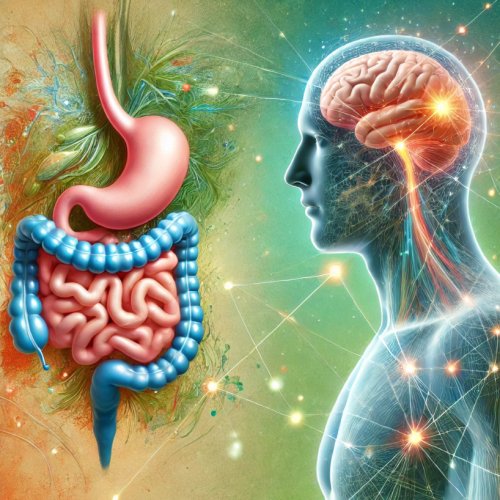
Have you ever heard the saying “trust your gut”? It turns out, there’s more truth to this than we might think. Emerging research shows that gut health can influence mental health in remarkable ways. This mind-gut connection is now being explored as a key factor in our overall well-being. Let’s dive into how these two systems are connected and why nurturing both can lead to a happier, healthier life.
Have you ever heard the saying “trust your gut”? It turns out, there’s more truth to this than we might think. Emerging research shows that gut health can influence mental health in remarkable ways. This mind-gut connection is now being explored as a key factor in our overall well-being. Let’s dive into how these two systems are connected and why nurturing both can lead to a happier, healthier life.
Mental health and gut health are strongly linked. Research shows that individuals with mental health issues, such as anxiety or depression, often have imbalances in their gut bacteria. When the gut microbiome is out of balance, it can trigger the production of inflammation-causing compounds that affect brain function, potentially contributing to mood disorders.
Your gut microbiome doesn’t just affect digestion—it can also influence brain function. Through the gut-brain axis, your gut can send chemical signals that impact mental clarity, mood, and even memory. Gut inflammation, for example, has been shown to correlate with symptoms like brain fog, indicating just how closely connected these two systems are.
The gut’s enteric nervous system (ENS), which is embedded in the walls of the gastrointestinal tract, is sometimes called the ‘second brain.’ This network of neurons can function independently of the brain and plays a huge role in controlling digestion and sending signals that affect emotions. This powerful system can communicate directly with the central nervous system, impacting everything from mood to decision-making.
The gut microbiome helps produce chemicals that influence our emotions. Having a diverse gut flora can increase the production of neurotransmitters like dopamine, which can reduce stress and contribute to feelings of happiness. Studies have shown that individuals with a rich variety of gut bacteria tend to experience less anxiety and depression.
Stress and gut health are closely linked. Chronic stress can lead to gut dysbiosis, where harmful bacteria outnumber the beneficial ones, which can result in digestive issues and weakened immunity. This imbalance can further increase stress levels, creating a loop that can be challenging to break. Gut bacteria help produce chemicals that regulate stress, so maintaining a healthy gut can aid in reducing stress levels.
Digestive health can significantly impact brain health. An imbalance in gut bacteria has been linked to mental health issues such as depression and anxiety. For instance, conditions like irritable bowel syndrome (IBS) are frequently associated with mood disorders, highlighting how closely our gut and mind are connected.
A balanced gut can enhance mental well-being, and there are several ways to support this connection. Incorporating probiotics, such as yogurt and fermented foods, into your diet introduces beneficial bacteria that can help maintain gut balance. Foods high in fiber, like fruits, vegetables, and whole grains, serve as prebiotics that nourish these beneficial bacteria and promote a diverse microbiome.
A growing body of research suggests that gut health affects cognitive function, including memory and focus. Short-chain fatty acids produced by gut bacteria are known to protect the brain from inflammation, which is essential for maintaining mental clarity. A balanced gut microbiome can therefore play a crucial role in supporting memory and overall cognitive health.
To improve both gut and mental health, aim for a varied diet rich in fiber, whole foods, and fermented products. Prebiotics, like onions, garlic, and bananas, fuel healthy gut bacteria, while probiotics introduce beneficial bacteria into your system. Regular exercise, adequate sleep, and stress-reduction techniques like meditation can also contribute to a healthier gut and a calmer mind.
Long-term gut health can be supported by adopting lifestyle practices that nurture the gut-brain axis. Regular exercise has been shown to boost gut diversity, while mindfulness and relaxation techniques can reduce stress, which in turn helps maintain a balanced microbiome. Embracing these practices holistically can enhance both your gut health and your mental well-being.
It’s clear that the gut-brain connection plays a significant role in our mental health. By taking care of your gut through proper diet, lifestyle choices, and stress management, you’re also nurturing your mind. As we continue to uncover more about this remarkable connection, it becomes evident that a healthy gut is not just about physical health—it’s also key to mental wellness.